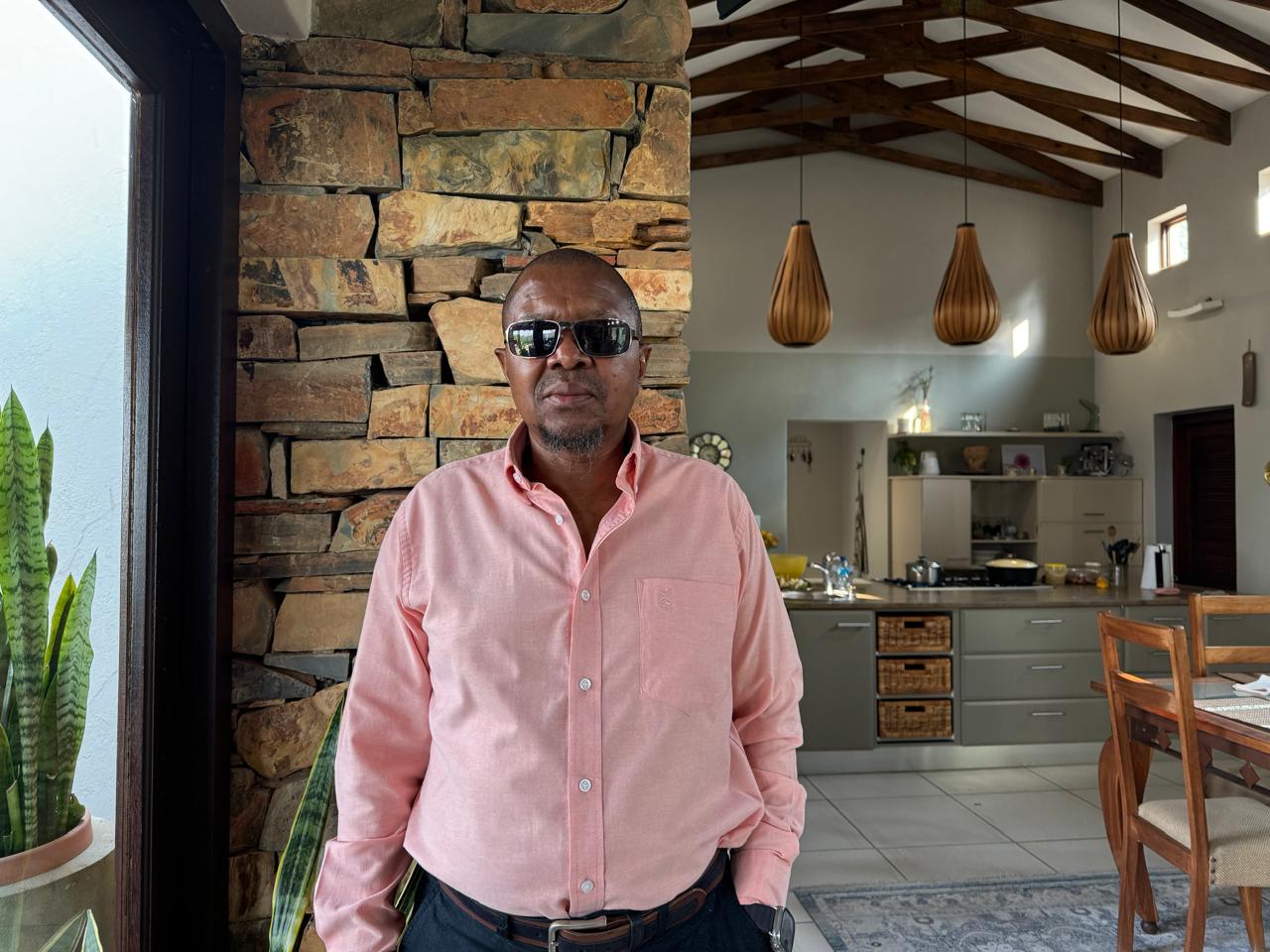
Judge Brian Mashile of the Mpumalanga Division of the High Court. Photo supplied.
When Judge Brian Mashile of the Mpumalanga Division of the High Court lost his vision after an attack from migrant labourers in the Alexandra township, Gauteng, he had to develop a listening skill and also learn how to use Braille.
Mashile is among six million blind people in the world, who are using Braille system to read and write. According to a house museum in Paris, Musee Louis Braille, Braille is universal and available in all languages worldwide. The Musee Louis Braille and American Foundation for the Blind, explain on their sites that Braille was invented by a French educator, Louis Braille in 1821 who lost one of his eyes at the age of three, resulting from an accident with a stitching awl in his father’s harness making shop. The infection spread to both eyes, resulting to his total blindness at the age of five. The Musee Louis Braille’s site states that 253 million people are visually impaired: 36 million are blind and 217 million have moderate to severe visual disabilities.
In an exclusive interview with Diary Series of Deaf People, Mashile explained that his occupational therapist and ophthalmologist, Dr Glynis Heughan helped him to learn how to utilise Braille in a single year. She also made sure he gets a bursary to further his studies at Witwatersrand University.
Mashile chuckled:
READ: A High Court Judge Shares His Powerful Life Story That Can Change Your Life
“She asked me what I want to do, and I told her, ‘my options are not many and I cannot do medicine anymore.’ She realised the problem and that my Braille was not as good as a person who would have studied through Braille from childhood. So, I had to do school subjects that were more text and not figures like maths.”
During his university years, he relied on the voluntarily recorded audios of the study material by fellow law students, captured through cassette tapes. Cassettes are said to have been invented in 1962 by Phillips Company in Belgium.
“So, I depended a lot on fellow students and, at times, their parents. Perhaps I should add here that the university personnel such as lecturers and secretaries also assisted with reading. I would read through tapes. So, I used Braille at high school but I could not use it at university. Braille would have required a massive space to store my reading material. Furthermore, my reading of Braille would have held me back in my studies because I could not read as fast as a person who learnt it from childhood. Faced with this challenge, the tape recording machine and cassettes became the only alternative.“
Mashile said:
Mashile did his BA and LLB law from 1983 to 1988. After completing his studies, he served his articles with Edward Nathan & Friedland, currently ENS. He then opened his own law firm with a former varsity mate, Victor Ntlhoro. Their law-form was called, Mashile-Ntlhoro. The two worked together until Ntlhoro was injured and medically boarded.
Mashile-Ntlhoro continued to operate until 2004 when he was joined by Gcwalisile Makhathini. The firm then changed its name to Mashile-Twala. It underwent a further name change to Ramushu Mashile Twala in 2009 when they recruited Melatong Ramushu. To date, it is still operating under that name.
Read more about Judge Mashile’s work years as an attorney, Judge and family life in our upcoming articles.

